Latest News
Development is Key, Foundation for Security in Afghanistan: Chinese Envoy
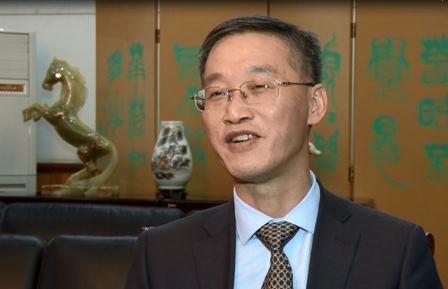
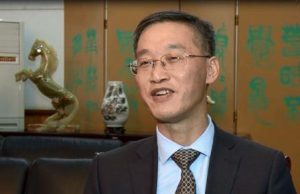 Chinese Ambassador to Afghanistan, Yao Jing says development is key, base and foundation for security in Afghanistan.
Chinese Ambassador to Afghanistan, Yao Jing says development is key, base and foundation for security in Afghanistan.
In an interview with Ariana News the Chinese envoy said that security will come to Afghanistan when people work for the betterment of their life by engaging in trade and business.
“Peace and security is very important, we have different perception, always we believe when people working for a better life and a better society usually development is the key, the bases and the foundation for security,”
“We believe that if the economy improved and the society be busy in trade, business, construction and in such things the security could be secured,” Yao Jing said.
He said China wants to contribute in development of Afghan economy by trade, people-to-people contacts and by offering facilities so Afghanistan get engaged in development scheme and that is to work together for common prosperity of the region that benefits both countries.
In other part of his speech, Ambassador Jing said that Afghanistan plays an important role as far as “One Belt, One Road” initiative is concerned.
“Some people thing Afghanistan is not included in the scope but I should say that this initiative is nothing to do with geographical scope. When China moves to the west, Afghanistan is the first neighbor that we are in contact with, so we take Afghanistan as major partner.”
According to Jing, when President Ashraf Ghani visited on October 2014, he was the first among the international leaders who recognized and supported the “One Belt, One Road” initiative, followed by chief Executive Abdullah Abdullah who visited the country last year where he signed MoU of cooperation under this initiative.
So far more than sixty countries have signed MoU with China including Afghanistan for “Belt and Road” initiative as part of a conception of regional cooperation, common development and the prosperity.
He said that China and Afghanistan is under discussion for empower of five nations railway line, from China, Tajikistan, Turkmenistan, Afghanistan and Iran and further toward Europe.
The Chinese official further added his country is also in talk with Afghan government regarding the fiber-optic, crossing through Wakhan corridor and the governments of the two countries have signed an agreement on starting the construction of this project.
He concluded the direct flights from Kabul to China resumed as part of the cooperation and the passenger of the flights are mostly businessmen that using air cargo service for some commodities like Saffron that takes lot of exports from Afghanistan to China.

Latest News
Almost 28,000 foreigners visit Afghanistan in past year
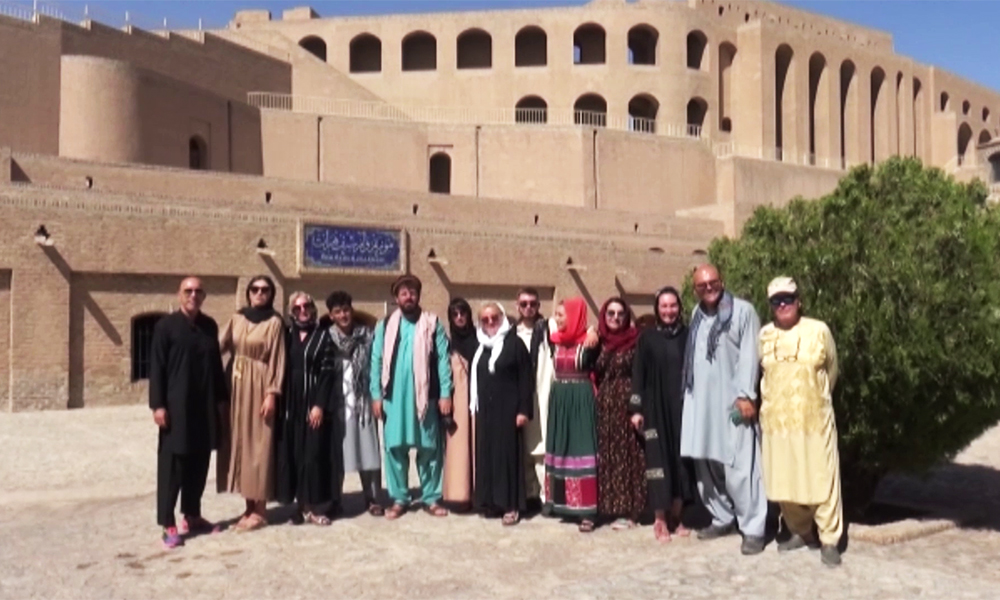
The National Statistics and Information Authority (NSIA) said this week that in the past year, almost 28,000 foreign nationals have visited Afghanistan.
The authority said that over the past year, it registered the entry and exit of 27,914 foreign citizens through land border crossings and airports in the country.
According to the figures recorded by this authority, the highest number of border crossings of foreigners was through Nimroz province crossing, Herat airport, Torkham crossing, Haritan crossing and Kabul International Airport.
NSIA said most people came in for work purposes or as tourists.
The authority also stated that tourists primarily visited historical sites in Bamiyan, Herat, Kandahar, Nangarhar, Ghor, Badakhshan, Kunduz, Paktia, Khost, Nuristan, Balkh, Samangan and Kunar provinces.
Latest News
Minister of Water and Energy meets with Chinese envoy over joint projects
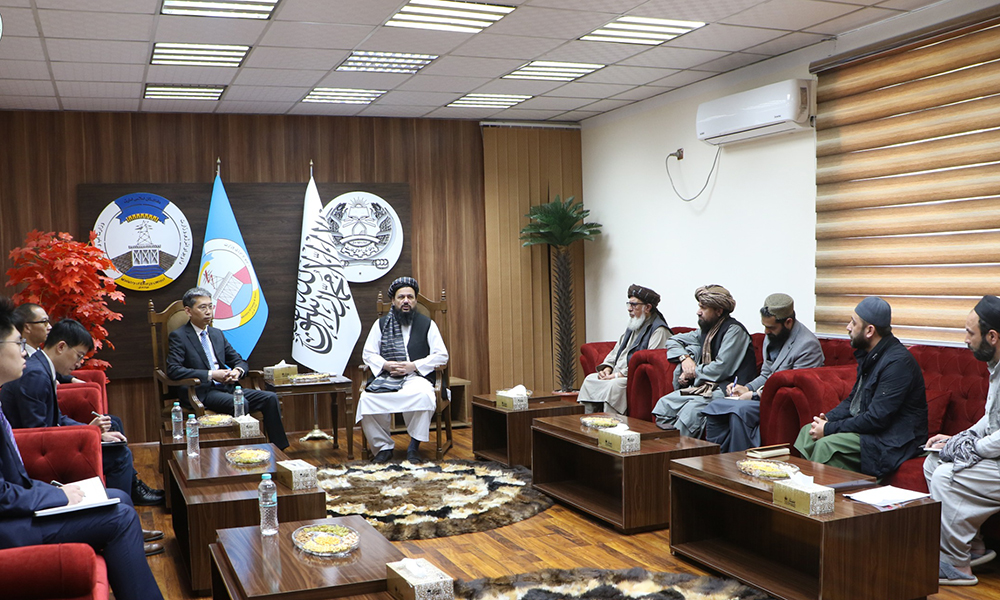
Abdul Latif Mansour, Acting Minister of Water and Energy, met with Zhao Xing, the Chinese Ambassador to Afghanistan, on Thursday in Kabul.
The Ministry says that Mujibur Rahman Omar Akhundzada, deputy Minister of Water; Dr. Farooq Azam, the official advisor of the Ministry; and a number of technical officials were also at the meeting where they discussed joint cooperation in the implementation of water and electricity projects.
Both sides noted the good economic and commercial relations between the two countries, and discussed various issues including the Bagh Dara dam project in Kapisa province and the Surobi 2 power dam project – which will supply electricity to Mes Aynak copper mine in Logar province.
Mansour said the implementation of these projects was important and necessary, especially the power project for Mes Aynak mine.
“Mr. Mansour stressed on speeding up the affairs to start the practical work and reminded the Chinese companies to show the necessary seriousness and determination in the implementation of these projects; the ministry will contract more projects for investment with Chinese companies in the future,” the statement read.
At the same time, the Chinese ambassador assured the leadership of the ministry of the embassy’s cooperation in the implementation of these projects and promised that Chinese companies will take the necessary measures to invest in the mentioned projects as soon as possible.
Latest News
Biden ‘ignored advice’ on US troops withdrawal from Afghanistan: Khalilzad
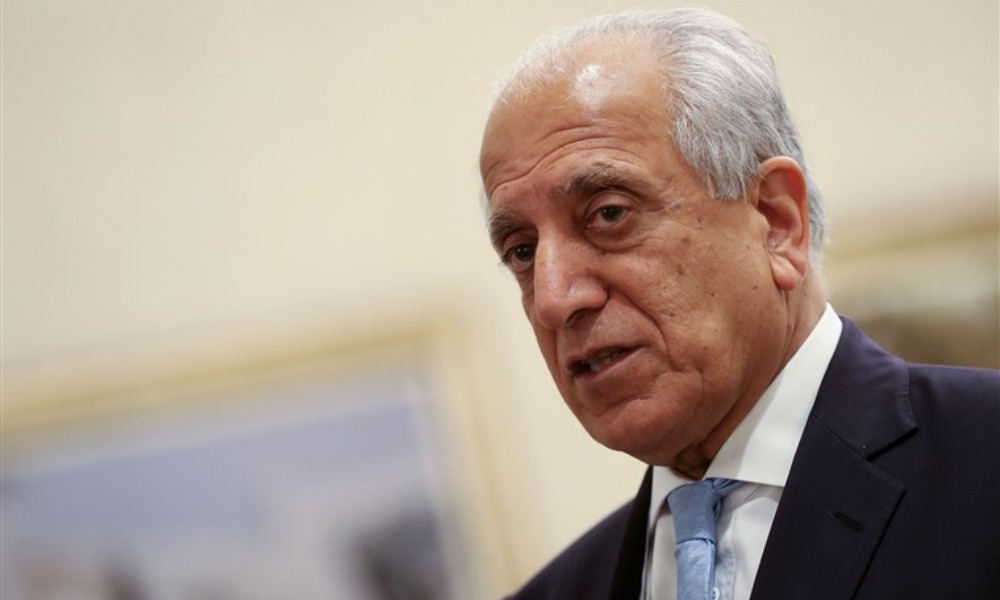
US President Joe Biden ignored the counsel of senior US diplomats, including Secretary of State Antony Blinken, who urged him not to pull US troops out of Afghanistan without certain conditions in place, former Special Representative for Afghanistan Reconciliation Zalmay Khalilzad told the House Committee on Foreign Affairs in a transcribed interview released Wednesday.
Khalilzad — who helped negotiate the Doha agreement that led to the complete withdrawal of troops – testified that Biden could have stopped or altered the plan to remove all US forces from Afghanistan by September 2021.
“The State Department — or the secretary and myself, we wanted a conditional withdrawal approach,” he said. “But the ultimate decision was, as we all know, that it was to withdraw based on a timetable.”
Khalilzad said he recommended that the Islamic Emirate and the Afghanistan government at the time reach a separate peace agreement before US troops left the country.
“Secretary Blinken and I, I believe, did recommend that conditionality. That’s my judgment, that conditionality would be the prudent thing to do,” Kalilzad told the committee in his Nov. 8 interview. “But then the response was, ‘Can you get the other side – the Talibs (Islamic Emirate) – not to go back to fighting?”
In his testimony, Khalilzad said such an agreement could have been based on an early 2021 peace negotiation that Khalilzad said visualized a “peace government,” which would have given the Islamic Emirate an equal share of power over Kabul with the then Western-backed Afghan government.
“It was essentially kind of a power-sharing formula that our experts had put together in consultation with outside experts in which the government consists of individuals with ties to both – from the Afghan Government and the Taliban – and be led by somebody acceptable to both sides,” he told the committee.
He said that when reaching such a conditional agreement appeared unlikely, Biden instead decided to move forward with the pullout to avoid IEA attacks on US forces.
Khalilzad said the sudden lack of US support helped enable the Islamic Emirate to retake power, 15 days before the last American service member left the capital.
Khalilzad also told lawmakers that State Department officials had predicted the power-sharing initiative would not have lasted longer than three years without a continued US presence in the country.
He also said at points throughout negotiations with the Islamic Emirate, there were times he believed that the IEA “negotiated merely as a stall tactic to wait out the U.S. until its military forces withdrew to zero.”
Khalilzad believed Biden’s announcement in April 2021 to withdraw all U.S troops negatively affected the morale of the Afghan government forces. He explained that: “The U.S. withdrawal had a psychological impact and negatively affected the relative balance of power for the government. That’s obvious.”
-

 Sport2 days ago
Sport2 days agoAfghanistan announce T20 World Cup 2024 squad
-

 Sport4 days ago
Sport4 days agoKohli slams strike-rate talk and pundits ‘from the box’
-
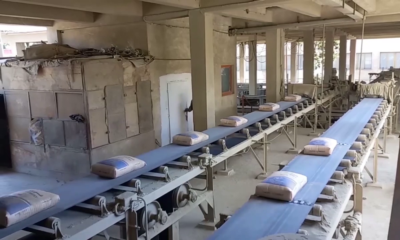
 Latest News5 days ago
Latest News5 days agoGhori State Cement in Baghlan increases production
-

 World4 days ago
World4 days agoBlinken arrives in Saudi Arabia to discuss Israel normalization, post-war Gaza
-

 Regional4 days ago
Regional4 days agoDubai ruler approves new $35 billion airport terminal
-

 Health4 days ago
Health4 days agoNationwide polio vaccination campaign kicks off across Afghanistan
-

 Sport2 days ago
Sport2 days agoNew Zealand to go ahead with Afghanistan cricket Test
-

 Science & Technology4 days ago
Science & Technology4 days agoMercedes Benz unveils electric G-class at Beijing Auto Show
















